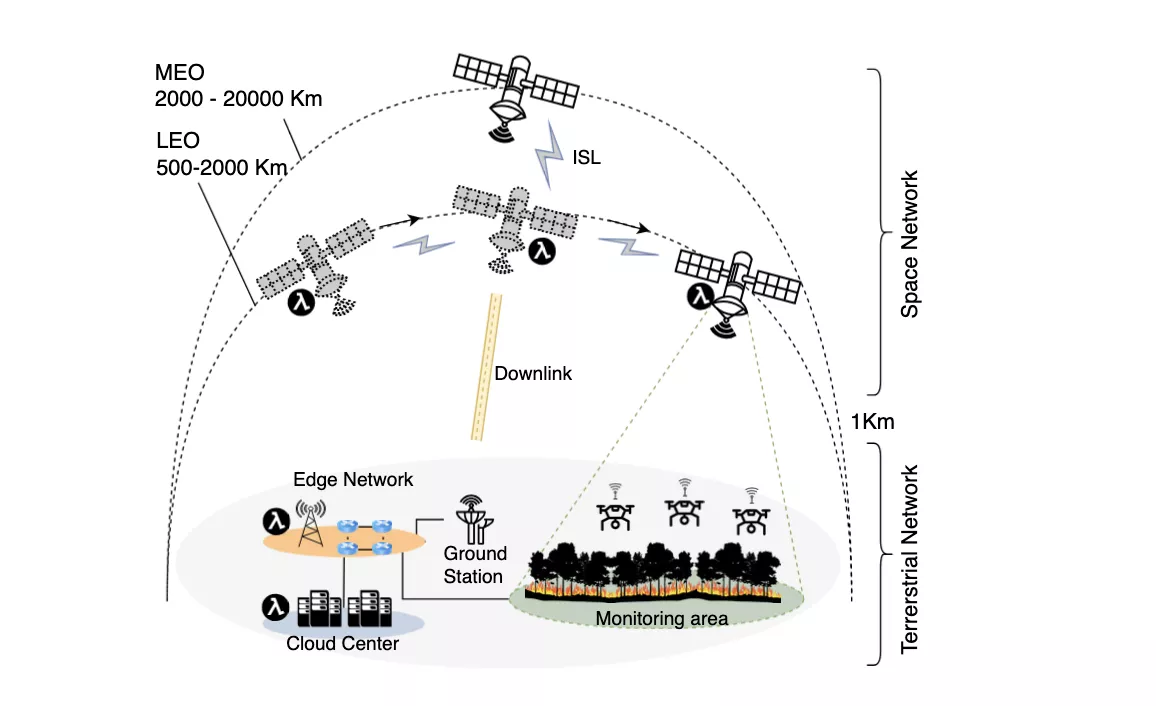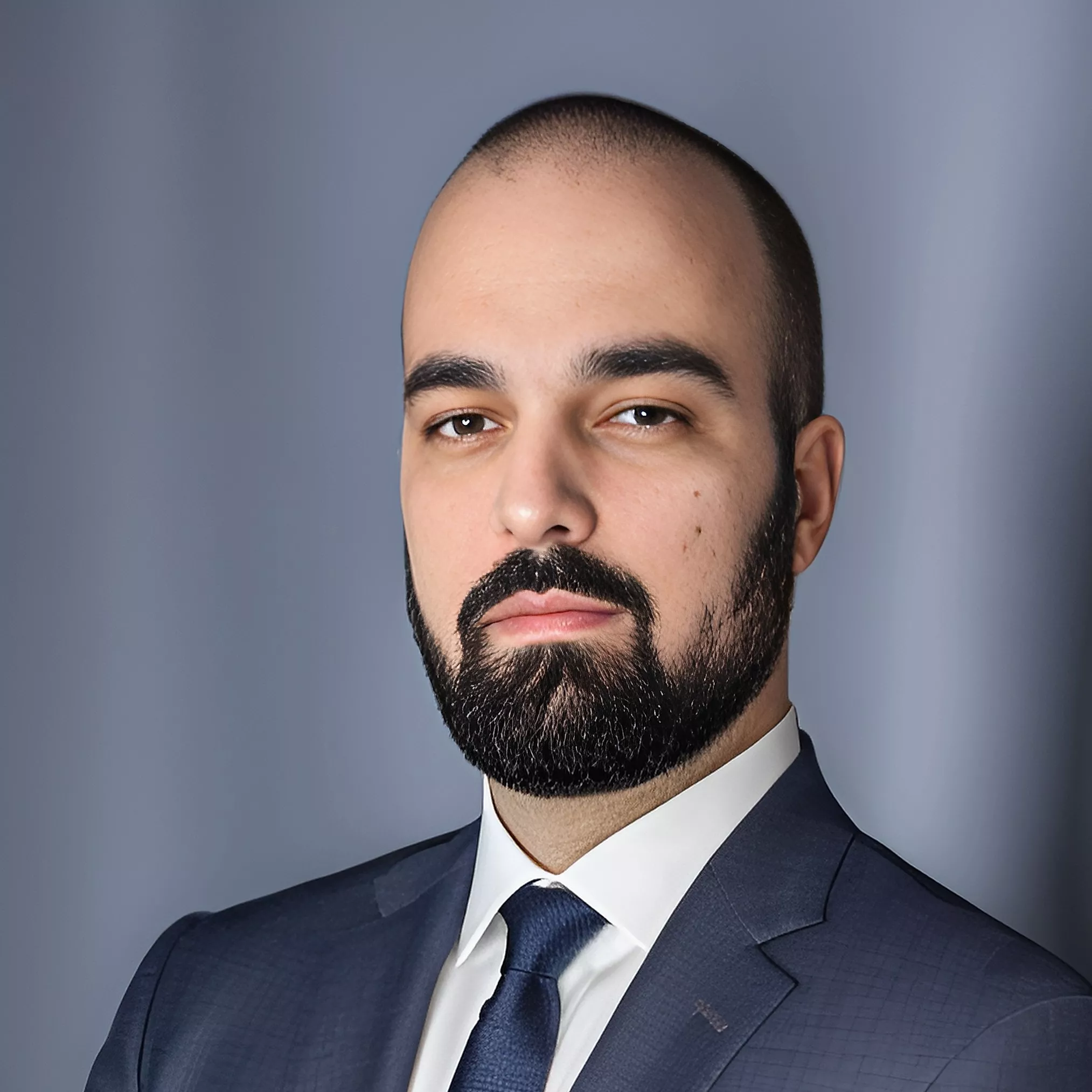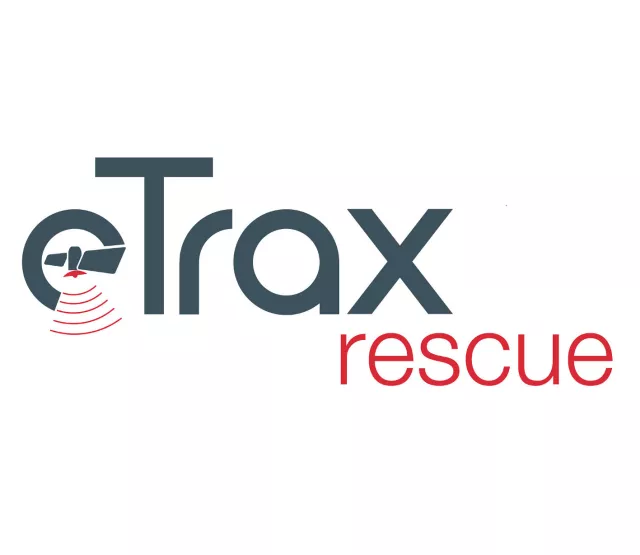
LEO Trek
Förderjahr 2024 / Projekt Call #19 / ProjectID: 7442
LEO Trek ermöglicht die nahtlose Ausführung von Serverless Functions im 3D Continuum. Disaster Response Anwendungen müssen schnell Earth Observation (EO) Daten von Satelliten mit InSitu Daten von der Erde kombinieren, um wichtige Infos für Hilfeteams zu erarbeiten. EO Rohdaten von Satelliten sind riesig, sodass das Herunterladen auf die Erde zeitintensiv ist. Eine Verarbeitung der EO Daten auf Low Earth Orbit (LEO) Satelliten kann viel Zeit sparen und schneller Ergebnisse an Hilfeteams liefern.
Themengebiet
Zielgruppe
Gesamtklassifikation
Technologie
Lizenz
Uni | FH [Universität]

Projektergebnisse
Gaia is a GPU-as-a-service model and architecture that makes hardware acceleration a platform concern. Gaia combines (i) a lightweight Execution Mode Identifier that inspects function code at deploy time to emit one of four execution modes, and a Dynamic Function Runtime that continuously re-evaluates user-defined SLOs to promote or demote between CPU- and GPU backends.
Roadrunner is a sidecar shim that enables near-zero-copy, serialization-free data transfer between WebAssembly-based serverless functions. Roadrunner reduces the multiple copies between the user space and kernel space by mapping the function memory and moving the data along a dedicated virtual data hose, bypassing the costly processes of serialization and deserialization.
Databelt is a state management framework for serverless workflows designed for the dynamic environment of the 3D Compute Continuum.
This interim report summarizes the LEO Trek project, which extends serverless computing into the Edge–Cloud–Space 3D Continuum by leveraging LEO satellites for distributed computation, highlighting achieved objectives, published results, released software, and key outcomes.
Stardust is a scalable and extensible simulator for the 3D Continuum, enabling experimentation with large LEO satellite constellations, custom routing protocols, and orchestration algorithms, while simulating up to 20K satellites.
HyperDrive is an SLO-aware scheduler for serverless functions in the 3D Edge–Cloud–Space Continuum that optimally places workloads across Cloud, Edge, and LEO satellite nodes based on availability and SLO requirements.
ChunkFunc is an SLO- and input-aware framework for optimizing serverless workflows that automatically tunes resource configurations based on the size of function inputs.
FedCCL is a Federated Clustered Continual Learning framework that combines static pre-training clustering with an asynchronous Federated Learning protocol to enable privacy-preserving, adaptive, and efficient model training across heterogeneous clients.
Cosmos is a cost-performance tradeoff model for serverless workflows in the 3D Edge–Cloud–Space Continuum, identifying key cost drivers across workloads and cloud providers.
Stardust 3D Continuum Simulator
HyperDrive Serverless Schedule
ChunkFunc Serverless Workflow Optimizer
FedCCL Federated Learning Framework
Databelt Serverless Function State Management
Gaia Hybrid Serverless Runtime for AI Workloads
Dokumentation Externkommunikation zur Erreichung Sichtbarkeit /Nachhaltigkeit (als Teil des Endberichtes)
Entwickler_innen-DOKUMENTATION
Anwender_innen-DOKUMENTATION
Veröffentlichungsfähige Einseiter / Zusammenfassung









